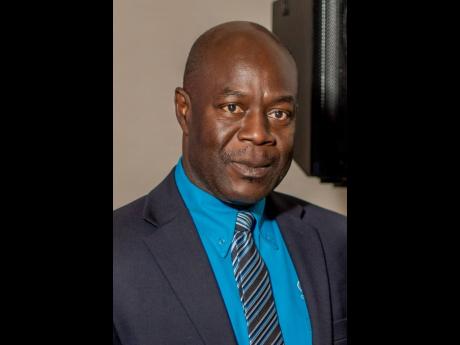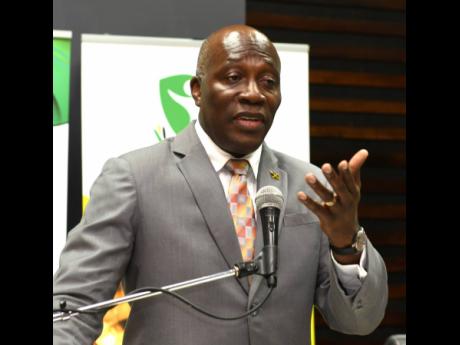‘We have the capacity to produce the reports’
C-TOC head says retooling should address delay issues as court tosses several scamming cases
WESTERN BUREAU:
The head of the police’s Counter-Terrorism & Organised Crime Investigations Branch (C-TOC) has labelled as “unfortunate” the move by Chief Justice Bryan Sykes to dismiss dozens of lottery scamming-related cases in Trelawny amid a delay in getting the necessary reports for the matters to proceed.
Justice Sykes, who was presiding over the Trelawny Circuit Court, expressed frustration with the slow turnaround time for reports from C-TOC’s Communication Forensic and Cybercrime Division (CFCD), causing a backlog of cases.
At the close of the first phase of the Easter sitting, which ran from June 5 to 30, the Trelawny Circuit Court disposed of 71 cases, with 52 lottery scamming matters among those dismissed.
The accused persons in those 52 cases had been charged with possession of identity information in contravention of the Law Reform (Fraudulent Transactions) (Special Provisions) Act.
Under Section 10 of the act, a person commits an offence by knowingly obtaining or possessing identity information of other persons under circumstances where it may be reasonably inferred that the offender has used or intends to use the information unlawfully. If convicted, an offender may be subjected to a fine or a term of imprisonment not exceeding 15 years, or both a fine and imprisonment.
But speaking with The Sunday Gleaner, Assistant Commissioner of Police Anthony McLaughlin, who heads C-TOC, said the police are capable of producing the reports, but acknowledged that the number of cases had been proving a challenge.
C-TOC relies on its CFCD to examine electronic devices seized from suspects for evidence to build its cases.
“When you look at the Cybercrimes Unit taking up over 3,000 cases per year, that, in itself, is very overwhelming. It is not that we cannot produce the reports, but it is based on the number of devices coming to us to be analysed and the process to do so, in addition to examining video footage and so on, and it is sometimes overwhelming, but the police have the capacity to produce the results for the court,” McLaughlin said.
Some lawyers in western Jamaica have voiced approval for Justice Sykes’ decision to dismiss the 52 cases, which they said allows for a balancing of justice for affected defendants.
Michael Hemmings, president of the Cornwall Bar Association, told The Sunday Gleaner that the decision is in keeping with the judiciary’s objective of resolving cases quickly.
“The Constitution and our jurisprudence speak to a person being brought before a court within a reasonable time, and also having a trial within a reasonable time. The principle is that of fairness, and, therefore, I support the position taken by our chief justice, where matters that are before the court in excess of six years and are not trial-ready are to be dismissed,” said Hemmings.
Fellow attorney, Henry McCurdy, likewise agreed, noting that lottery scamming defendants often have to wait upwards of five years or more before their cases can be resolved.
“To have a matter before the courts for five or six years, waiting on it to be completed, it is very sad. What the chief justice said is only fair,” McCurdy said in a brief statement.
Another attorney, Martyn Thomas, specifically cited the outstanding CFCD reports as a reason that many lottery scamming defendants, including some of his own clients, are having their matters drawn out.
“I have had several clients in recent times, more than 20, who are charged with this and they are all frustrated because most of them are proclaiming their innocence. These matters start in the parish court, and after three years, the CFCD reports are not ready, but the parish court judge does not have the power to dispose of the matters, so in trying to balance the scales and act fairly, the only thing the judge can do is send the matters to the circuit court for them to be disposed of,” said Thomas.
Last week, the Office of the Director of Public Prosecutions also noted that “long-standing resource constraints” have been making “fellow stakeholders in the system ... become increasingly impatient.
“This stems from the inability of the CFCD to produce reports in lottery scam cases in a timely manner,” said Director of Public Prosecutions Paula Llewellyn.
“There were a number of cases on the Trelawny Circuit list dating from as far back as 2014 where the only item outstanding on the file was the CFCD report. On enquiries, it was discovered that some of these cases had not even had assigned to [them] any analyst within the department,” Llewellyn added.
But McLaughlin said that the chief justice’s action took place ahead of a planned overhaul of C-TOC’s reporting system.
“The system is being looked at and worked on as we speak. The whole process is being overhauled, and we are looking to see how best we can retool and make the division more efficient. It is something we have been looking at over a period of time, and it is just unfortunate that before we were able to put some things in place, this situation happened.
“The ruling does not affect the police’s ability to do and continue to do those cases. What has happened is that over the years, quite a number of factors have affected the division, such as attrition,” McLaughlin added. “It is going to be a work in progress, and we have been retooling where necessary, plus adding more staff, so I think that in short order, we will be able to boost our capacity to where we can be more efficient.”


